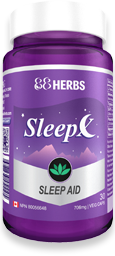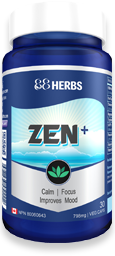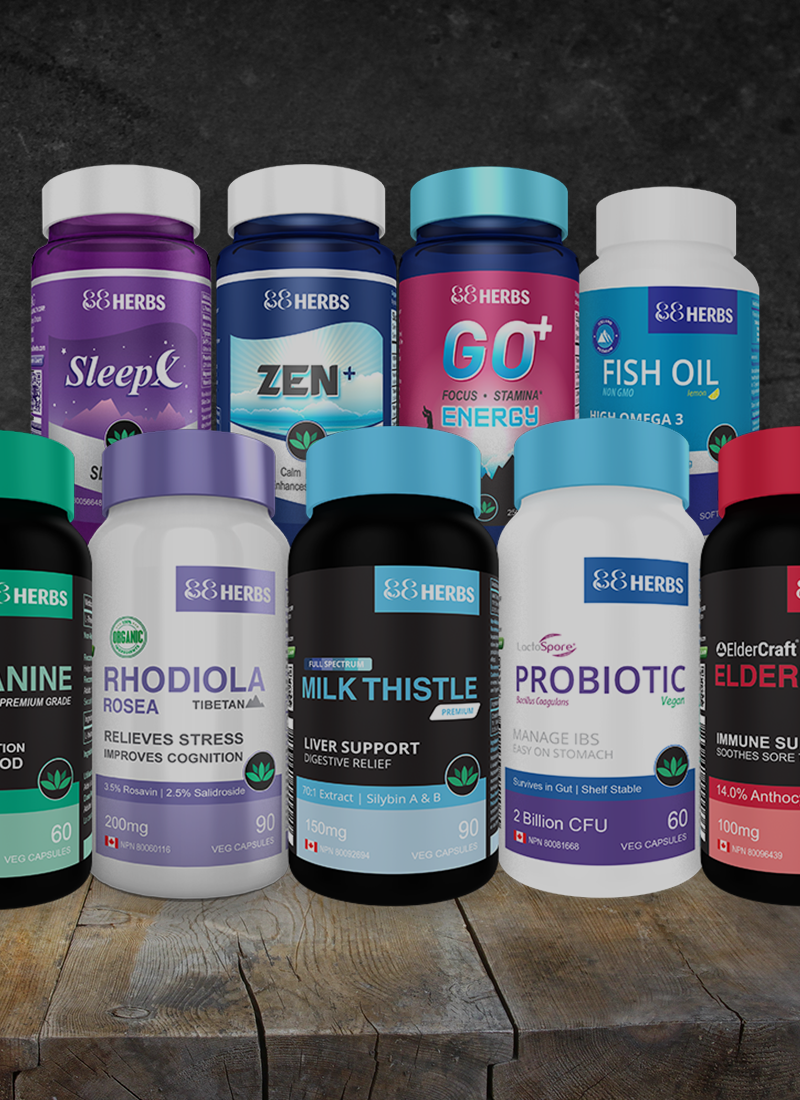Do Anxiety Supplements Work?
Do Anxiety Supplements Work?
The short answer is, yes, absolutely they do. But there is a ton of misinformation out there on both sides of this debate, along with countless cheap and ineffective brands of supplements trying to make a quick buck.
First, I want to touch on a bit of background as to where the confusion is really coming from. There are literally billions of dollars at stake on both sides of this issue. Simply put, the pharmaceutical industry has a massive vested interest in keeping as many people as possible on their patented prescription medications. The notion of a natural herbal product eating into their sales would be a nightmare for them.
On the opposite side of the spectrum, supplements are a multi-billion dollar a year industry. Large supplement companies have a huge financial interest in telling people that their natural herbal product will dramatically help people’s anxiety, regardless of the truth. Since the typical consumer isn’t hugely educated in understanding natural supplements, most large supplement companies understand that from a strictly business perspective, they can make very cheap supplements, sell them at a high price, and market them as highly effective. From a manufacturing perspective, cheap and ineffective supplements are a tiny fraction of the cost of the highly potent and effective ones. Since most people don’t know the difference, most, but not all, supplements on the market are no where near as good as they should be.
So back to the point of this. Yes, natural anxiety supplements do work. And I’m going to do my best to let you understand what you need to know about them and how to approach this as a consumer.
First of all, everybody is different, and every type of anxiety is different. Certain natural herbs work better for some people than for others. If an herb works for one person but not another, you’ll see a lot of people say, “see, that must be the placebo effect because it didn’t work for me”. That type of thinking is total nonsense. Sure, sometimes it is the placebo effect, but often it’s because some things work for some people but not others. But there is almost certainly some herb, or a combination of herbs, which will work very well for your specific case of anxiety in your specific body. You just need to understand what your problem is specifically, and try stuff until it works for you personally.
Secondly, and this is the most important. Most anxiety herbal supplements on the market today (and other types of natural supplements for other ailments) do not work well. You need to understand what is going on…
For example, if you read some article like, “The top 8 herbs for anxiety”, which are all over the internet and in magazines, you will read a list of these supplements by name, and then a little blurb on what each of them are supposed to do. You might read a statement like, “Passionflower helps with anxiety”.
The biggest problem with that statement is that it doesn’t say which type of passionflower they are talking about, and it doesn’t discuss the potency or the standardization of the passionflower, and it doesn’t say which other herbs, vitamins, and cofactors to also include along with the passionflower in order to make it work.
If you just took a batch of passionflower and grounded it all up into a powder (the most common and cheapest way to deal with any herb) and then sold it, it would almost certainly not be very effective unless a person took wildly massive doses of the product.
It’s not really the “passionflower” that works. It’s a certain type of active ingredient, or a set of active ingredients, inside the passionflower which give most of the benefits. This is true for all herbs.
Just like the % alcohol matters to know how strong a drink will be, and just like it matters to know how much THC is in a type of marijuana to know how potent it will be (you can’t just smoke the whole plant and expect a strong result) it matters to know how much of the active ingredient you’ll get in the herbs. Many companies “hide” this fact because the really high quality passionflower, for example, is much more for a manufacturer to produce. So they would rather just put the word “PASSIONFLOWER” on a bottle and not comment on their weak potency, and then sell it for a relatively high price while saving their costs along the way. In the case of passionflower, it’s the norm to have either unstandardized passionflower, which is almost completely useless, or to have it standardized to around 3.5-4% flavones (the active ingredient). While that is much better to get the standardized ones, they don’t tell you that it’s possible to get passionflower standardized to 20% flavones (much more effective as you’ll need just one fifth of the dose or less to achieve the same results). This is true across the board for all herbs, vitamins, amino acids, and cofactors. So do your homework!
The next major point you need to know is that these natural substances work far better in combination than when taken alone. A lot of “scientific” studies will just take one herb and give it to one group, while giving a placebo to another group. If the group who is taking the one herb becomes less anxious to a statistically significant degree over the control group, then the experimenters will say the herb “works” for anxiety. If not much difference is noticed, they will simply conclude it doesn’t work, or it doesn’t work very well.
There are 2 major problems with this. The first is that most studies don’t pay nearly enough attention to the quality and the potency of the herb they are studying. If you use a mediocre herb then you shouldn’t expect much. This isn’t a fair test unless you are really giving the patients a significant dose of the herb with the right amount of the active ingredient.
The next problem with this is isolationist approach is that it doesn’t give any indication as to whether or not the herb could work synergistically (together) with one or more other herbs to give the combined benefit to reducing anxiety. If one herb doesn’t work enough on it’s own, it sure doesn’t mean that a combination of 6 herbs wouldn’t work. And there isn’t enough time or money to study every single combination in detail. What we do know, however, is that combining potent and high quality standardized herbal extracts is far superior to giving them one at a time for patients with not only anxiety and depression, but for ailments pretty much across the board.
Now lets talk about vitamin B and anxiety for a moment. How many people tell you that vitamin B12 (methylcobalimine) and vitamin B6 (P5P) work so much better than the standard B12 and B6 vitamins which flood the market. Not all B12 or B6 vitamins are the same; actually, it’s not even close. The cheaper ones are used almost all the time and they don’t absorb well at all. But since they can write “B12” on the label, most people assume that’s enough. Well… It’s not enough. You need to get the effective B vitamins, not the standard ones which are in about 98% of the products you see in stores and the ones you’ve probably tried yourself. Pick up any bottle you have in your house right now, if it says “B12” but doesn’t say “methylcobalamin” you know you’ve bought from someone cutting corners. Ok, well now at least you know.
In conclusion, you need to realize that most of what is on the market will not work very well, so don’t just walk into a shop and buy the first thing you see on the shelf. You need to do your homework and figure out which will work well and get only that when you find it. It’s not just about the “name brand” or the pretty bottle. You need to understand the back of the label. Secondly, you need to realize that you should experiment with different herbal extracts yourself to see what works for you. That is what we all care about. What is going to work for us specifically, not what works for “other people”. And a potent combination of powerful herbs will likely work the best for you. Some herbs may work better than others based on your specific metabolism and condition, but the combination is undoubtedly the way to go if you want a chance.
We’ve put together an extremely unique and potent combination of passionflower (20% flavones), with 98% pure L-Theanine, valerian with 0.8% valerenic acids, with pure 5HTP, with ashwagandha standardized at 5% withanolides, with a potent Ginkgo Biloba and vitamin B6 (P5P) and vitamin B12 (methylcobalimine). When we formulated the product we paid zero attention to our costs. We just wanted to make the best and post potent herbal anxiety supplement that was possible.
It’s all made in Canada as well and it’s been accepted by Health Canada, the world wide leader in approving natural health products. The quality and potency is second to none, (nothing else is even close, and we encourage you to research this for yourself and come to your own conclusions).
Take a look at Zen-X, our flagship potent herbal anxiety supplement.
- Choosing a Fish Oil – What do the Experts Recommend?
- Combating Osteoporosis: The Role of Magnesium Bisglycinate in Bone Health for Seniors
- Magnesium Injections – Are there any Oral Alternatives?
- How I cured my Migraines – My Story…
- Fish Oil for Chronic Pain – What you Need to Know
- Zinc and Magnesium – What you Need to Know about the Combination
- Magnesium Dosage – How Much Magnesium Should I Take
- Zinc and Testosterone Overview: Why Zinc Bisglycinate is the Best Form
- Zinc Bisglycinate
- Zinc and Nausea – How to Take Zinc Without Causing Upset Stomach
- Magnesium for Migraines – Best Form, Prevention, Evidence
- L-Theanine and Ashwagandha – Why it is a Great Combination
- Curcumin for Knee Pain and Inflammation
- Curcumin and fish oil together
- Leg Cramps at Night – Type of Magnesium that Actually Works!
- Probiotics for Depression associated with IBS
- What is the best fish oil for pregnant women?
- Fish Oil – How to Choose the Best Quality
- Which probiotic should I take?
- Best Natural Supplements to help Studying for Exams
- Probiotics for Common Colds and Immune Health
- Best probiotic for IBS – Irritable Bowel Syndrome
- Probiotics for Diarrhea
- Bacillus Coagulans
- How to Quickly Get Rid of Caffeine Jitters
- How to Sleep Better Naturally
- Rhodiola Rosea for Reducing Anxiety and Stress
- Best Magnesium Supplement to Avoid Diarrhea
- 5-HTP for Weight Loss
- Canadian Health Supplement Company Exporting Premium Natural Health Products to Europe
- Rhodiola for Energy and Stamina
- Supplements for Parkinson’s – L-Theanine, Caffeine, Ashwagandha
- Alternatives to Adderall – 10 Natural Supplements
- Ashwagandha and Rhodiola – Combination
- Ultimate Guide to Natural Sleep Supplements
- L-Theanine and Caffeine
- Natural Supplements for ADHD
- Complete Guide to Non-Drowsy Anxiety Supplements
- Ashwagandha and Weight Loss
- KSM-66 Ashwagandha
- Passion Flower and Sleep
- L-Theanine and Sleep
- Magnesium bisglycinate (glycinate) – What you need to know
- Social Anxiety Disorder – Best Natural Supplements
- L-Theanine – Education and Overview
- L-theanine: Change your Mood
- L-Theanine and Anger Management
- Ashwagandha and Stress – Anxiety, Depression, and Sleep
- Do I need a Vitamin Supplement
- Ashwagandha
- Thermogenisis
- Supplements for approach anxiety
- Best supplement for Anxiety
- B Vitamins – An Important Overview
- 5-htp
- Do Anxiety Supplements Work?






